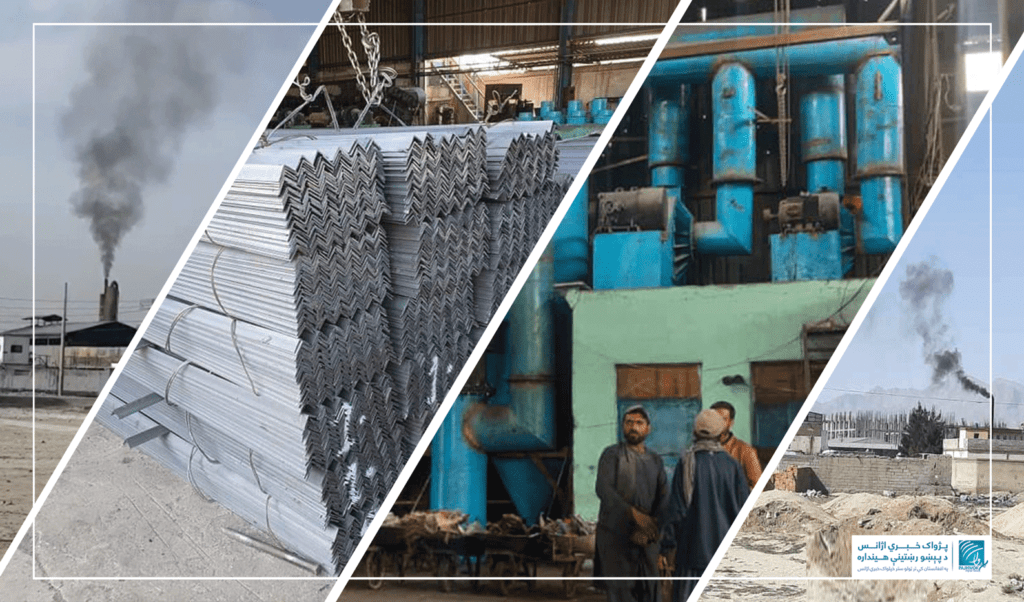KABUL (Pajhwok): Residents of capital Kabul living around industrial parks complain that some factories do not use filters and as a result they experience severe air pollution, however, factories’ officials and Kabul Municipality rejected the claim.
There are 200 factories in Kabul industrial parks in Pul-e-Charkhi area.
Local residents and their concerns
Hamid Safi, a resident of Hoodkhel village, told Pajhwok Afghan News, “We are surrounded by factories most of which smelt metals and most of them do not use smoke filters, they produce a lot of smoke.”
“The thick smoke these factories produce covers all the environment we live in, the smoke causes serious respiratory diseases, allergies and cancer,” he said.
He said that most locals, including members of his own family, suffered from respiratory illnesses, especially allergies, sore throats and cough. He added that factories must install filters to prevent smoke emissions.
Meanwhile, Mohammad Ershad, another resident of the area, held similar complaints.
“The fuel system of a number of steel mills has not been modernized and they do not have filters for air purification,” he said.
Meanwhile, Ahmad Bilal, who lives near the industrial park, complained about air pollution caused by the factories.
“The factories that produce thick smokes are mostly steel factories, one of these factories is Abdullah Ittihad steel factory, this factory have filter but it still produced thick smoke that pollutes the air,” he said.
He said locals had discussed the problem with the owners of the factories several times to solve their problem, but they took no action so far.
HaidarAhmadi, another resident of the area, said that the pollution created by the factories also made their houses and clothes dirty.
Most of the activities of these factories are carried out at night and the noises they create disrupt the peace and sleep of the public, he said. He asked the government to pay attention to the problem.
Doctors consider thick smoke emitted from manufacturing plants harmful to health.
Thick smoke pollutes environment and is harmful to health: Medical expert
Dr. Zabihullah Mohmand, a professor at the Ghazanfar Institute in Kabul, says smoke emitted from factories is a major cause of environmental pollution.
He said, “Air pollution has a detrimental effect on the health of people, especially the respiratory system, and adults and children are often affected by bronchial asthma diseases such as shortness of breath, sore throat, fever and cough.”
He stressed on the installation of filters in factories and said that filters would help reduce air pollution.
Factory owners say they installed filters
SafiullahZahedi, a shareholder at Khan Steel Mill, told Pajhwok Afghan News that the factory used an electrical system for steel and has installed a filter purchased from Germany.
He said that besides the filter installation, their fuel consumption was also regularly monitored by the Environment Protection Agency (EPA) and Kabul Municipality.
Qari Shomal Khan Shinwari, in charge of Abdullah Etihad Steel Plant, told Pajhwok that they also used the filter to prevent the air pollution.
About the complaints of people about air pollution, he said that many residential buildings are located very close to the industrial park which are somehow affected by the factories.
Shinwari said that industrialists currently had limited resources and it was impossible for them to standardize factories.
mds/ma







GET IN TOUCH
NEWSLETTER
SUGGEST A STORY
PAJHWOK MOBILE APP